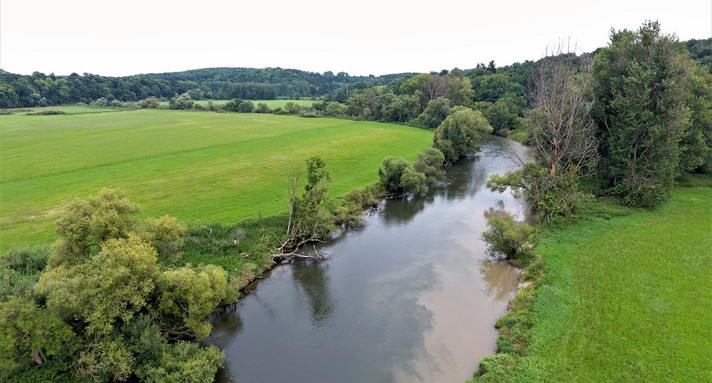Principles and objectives of the Water Framework Directive (WFD)
Baden-Württemberg was quick to implement the WFD systematically, and in the process benefitted from a long tradition in water management – for example, the consistent expansion of wastewater treatment and the use of agro-environmental programs that have reduced the nitrate contamination of groundwater.
The decisive innovation of the WFD is its holistic approach: It states that the ecological and chemical condition of surface waters, as well as the chemical and quantitative status of groundwater should be thoroughly investigated and evaluated.
Baden-Württemberg shares in five working areas of the Rhine international river basin district: Alpine Rhine/Lake Constance, High Rhine, Upper Rhine, Main and Neckar. Baden-Württemberg also has a share in the Danube river basin district. Management plans and programs of measures have been created for these six working areas, and they are updated in a six-year cycle. The programs of measures are aimed at achieving the ‘good’ status of the water.
Fields of action in Baden-Württemberg
For Baden-Württemberg, the following fields of action come into consideration:
The elimination of hydromorphological deficits of waters by
- continuing to improve waterbody structures in order to create habitats
- ensuring permeability of transverse structures
- ensuring sufficient water flow in order to maintain and link aquatic habitats
The reduction of nutrient inputs by
- reducing the phosphorus/phosphate inputs from agriculture and wastewater treatment in surface waters
- reducing the nitrate inputs in the groundwater
Measures to reduce the input of ubiquitous substances, such as mercury and polycyclic aromatic hydrocarbons (PAHs) from combustion processes
- Quantification of input pathways and the development of specific measures
Public participation
Besides the formal hearing, the WFD requires the early involvement of the public and the players involved. Baden-Württemberg attaches great importance to public participation, since the providing of information and the hearing of the public creates opportunities to improve the content of management plans and to increase their acceptance. Baden-Württemberg has a water advisory board among other things for this purpose. This panel is made up not only of the Federal Waterways and Shipping Administration and the tangent ministries of the state and the local state associations, but also of a representative cross-section of the associations and advocacy groups affected by the WFD from industry and commerce, hydropower, agriculture, fisheries, and nature conservation. The task of the advisory board is to advise the Ministry and to ensure the flow of information back and forth between the authorities and the societal groups.
In the course of preparing the management plans and programs of measures in 2009 and updating them in 2015, over 76 events were held across the state to inform the public and encourage its participation.

